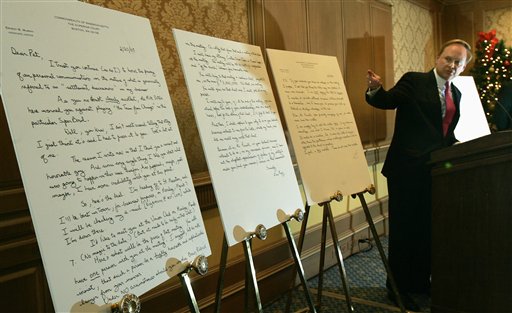Bruce William Sanford (1945– ) is considered one of the country’s leading First Amendment attorneys. He has defended over a thousand libel, intellectual property, and First Amendment cases; and has represented numerous writers, national news media, and book publishers, including President Bill Clinton, the New York Times, and Simon and Schuster.
Sanford earned his undergraduate degree in 1967 from Hamilton College and his law degree in 1970 from the New York University School of Law. He later joined Baker and Hostetler, a prestigious law firm in Washington, D.C.
Sanford argued for a federal shield law for journalists
After dozens of reporters were subpoenaed or questioned in federal court cases between 2003 and 2004 about their confidential sources, Sanford became concerned that the traditional judicial view of the First Amendment no longer provided sufficient protection for reporters and authors. The jailing of New York Times reporter Judith Miller in 2005 illustrated dramatically the need to protect reporters. Miller was sentenced to 85 days in jail for refusing to identify the confidential source who had disclosed the identity of undercover Central Intelligence Agency agent Valerie Plame.
Sanford suggested that the Supreme Court may have violated Miller’s First Amendment rights by refusing to hear her appeal. He further argued that, in light of the Supreme Court’s decision in Branzburg v. Hayes (1972) and companion cases, in which the Court found that requiring journalists to disclose confidential information to grand juries served an important state interest and did not violate the First Amendment, Congress should adopt a federal shield law that provided confidentiality protection for the media, similar to the protection given to lawyers, doctors, spouses, and clergy. He reasoned that serious investigative journalism depended on it.
Sanford serves as general counsel to the Society of Professional Journalists. He also has written various treatises and books — among them the influential treatise Libel and Privacy (2004) and the best-selling book Don’t Shoot the Messenger: How Our Growing Hatred of the Media Threatens Free Speech for All of Us (1999).
This article was originally published in 2009.

